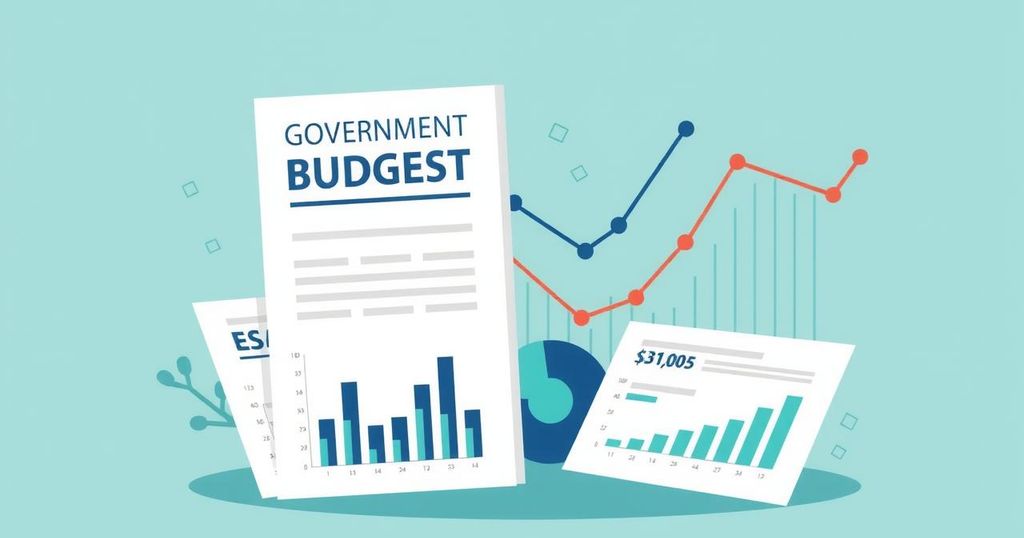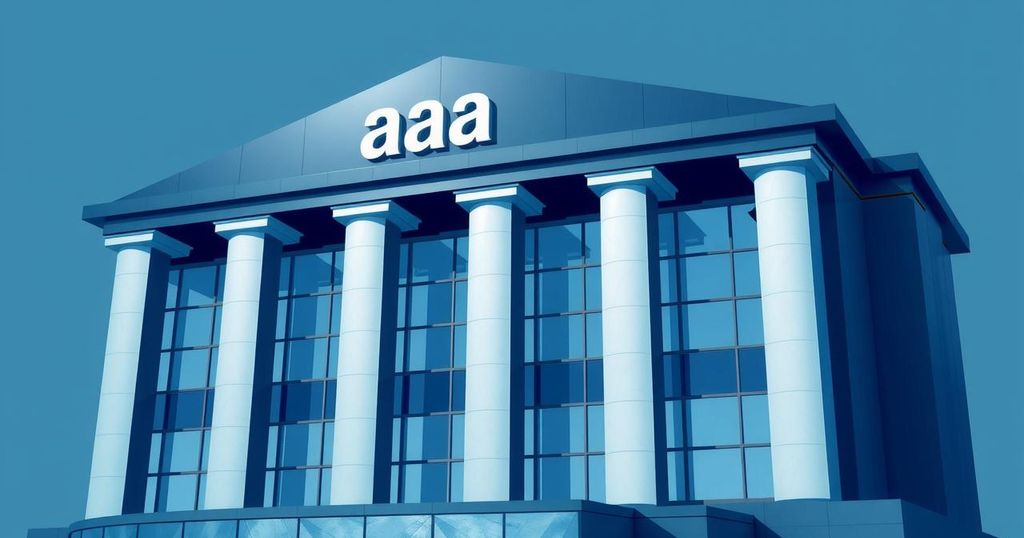South Africa’s 2025 budget is under scrutiny as lawmakers evaluate a proposed VAT increase amidst political divisions. Following its initial rejection, Finance Minister Godongwana seeks to secure support for the budget’s passage. The legislative process includes multiple phases of review and voting, with crucial deadlines approaching.
In the coming weeks, South Africa’s legislators will review the 2025 budget, with potential amendments being considered as political parties deliberate a contentious proposal to increase the value-added tax (VAT). Finance Minister Enoch Godongwana previously introduced a revised budget on March 12, which was largely rejected by major political entities, despite a reduction in the VAT hike from two percentage points to one, to be implemented over two years. For the first time since the end of apartheid, there is currently no clear pathway for the budget’s passage before the fiscal year concludes on March 31, which necessitates the African National Congress (ANC) to secure support from at least one other significant party.
The budget will undergo examination in three phases. First, lawmakers will vote on the fiscal framework and revenue proposals, which are critical as they define economic policy, revenue estimates, and overall governmental expenditure limits. This will be followed by deliberations on the division of revenue bill, detailing how funds are distributed among national, provincial, and local administrations. Finally, the appropriation bill will be voted upon, which allocates funding to designated departments and programs; all the prior bills must receive approval before moving forward.
According to parliamentary regulations, lawmakers have until April 3—16 working days post-budget tabling—to endorse the fiscal framework and associated revenue proposals, although leniency exists for any potential delays. Amendments to the budget are permissible, yet any revisions must remain within the bounds of the pre-defined revenue or expenditure estimates.
Should the budget fail to pass by April 1, the initiation of the new fiscal year would allow the government to utilize up to 45% of the preceding year’s budget until parliamentary consent for the new budget is obtained. However, the government would be prohibited from enacting new budgetary allocations without legislative approval.
Notably, the National Treasury indicated that it could implement the VAT hike by May 1, irrespective of the budget’s parliamentary status. This alteration would take effect from a date determined by the Minister and would remain valid for 12 months. If lawmakers were to reverse the VAT increase post-implementation, they would need to adjust tax legislation within the designated timeframe without necessitating repayment of the existing tax, as clarified by a parliamentary spokesperson.
The budget poses significant challenges for the ANC, which is navigating a coalition that arose following the party’s loss of majority control in parliament for the first time in its democratic history. ANC Secretary-General Fikile Mbalula expressed the party’s willingness to engage in discussions with all political factions to facilitate budget approval. Meanwhile, Minister Godongwana has conveyed openness to suggestions for budget modifications, emphasizing the necessity of understanding the associated complexities and trade-offs involved.
In summary, South Africa’s budget deliberations are set against a backdrop of political contention, with the proposed VAT hike serving as a focal point of debate. The government’s ability to navigate these discussions is critical, especially with tight deadlines and the implications of potential budgetary failures looming. The ANC’s collaborative efforts with other parties and commitment to dialogue may prove pivotal in reaching a consensus that fosters fiscal stability.
Original Source: money.usnews.com




